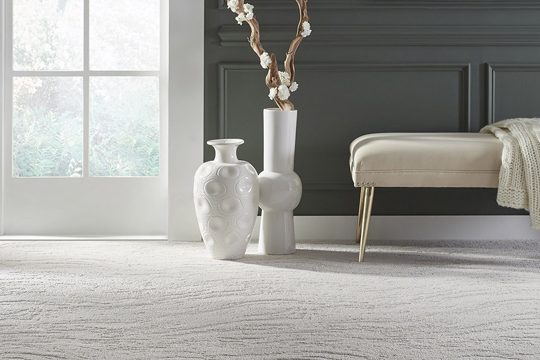
When it comes to investing in carpet, homeowners often find themselves grappling with the age-old question: Is wool carpet or synthetic carpet the better choice?
Uncover the differences and find your winner between Wool Carpet VS. Synthetic Carpet? Making a decision between these two options can be a daunting task. However, like any other significant decision, the right answer ultimately depends on your specific circumstances. Before you finalize your choice, it’s essential to consider a few key factors that can help steer you in the right direction.
Factors to Consider for Stain-Resistance and Durability
When choosing between wool carpet and synthetic carpet, it’s important to consider your needs. If you’re concerned about staining, synthetic carpet is a better option as it comes in all levels of stain resistance. Wool carpet, on the other hand, is naturally stain-resistant but if a spill is left untreated, it can permanently stain the fibers.
Stain Issues
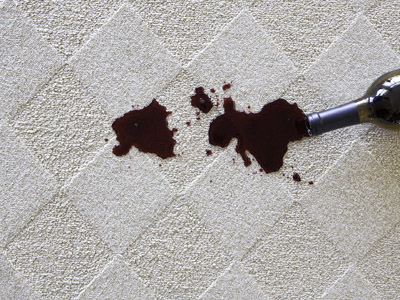
If your primary concern revolves around potential staining issues from kids, pets, or other factors, synthetic carpet is likely the optimal choice. Synthetic fibers offer a range of stain-resistant options, from basic synthetics to those treated with protective solutions like Teflon.
Although no carpet is entirely spill-proof, synthetic carpets, such as nylon, have an advantage. If a spill goes unnoticed and has time to set in, a heavy-duty spot treatment can often remove the stain. Unlike natural fibers like wool, synthetic fibers don’t readily absorb stains, making them easier to clean and maintain. We often recommend High-Performance Nylon Carpet for synthetic carpet.
Long Term Durability
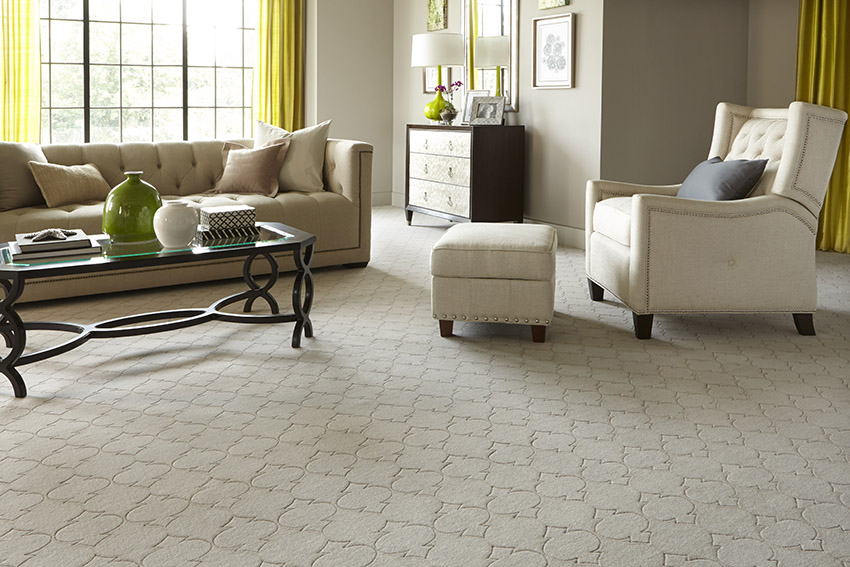
On the other hand, if your priority lies in long-term durability and you don’t have young children or pets at home, wool carpet emerges as the superior option. Wool carpets have an exceptionally long lifespan, often lasting a lifetime.
This longevity is owed to the unique three-dimensional spiraling crimp of each wool fiber, providing natural elasticity. This elasticity allows wool fibers to stretch up to 30% beyond their original length and then effortlessly bounce back, akin to miniature springs. Similarly, when compressed, wool fibers quickly recover their shape. The inherent resilience of wool enables it to withstand high levels of daily foot traffic and easily recover from furniture-induced crushing.
Synthetic Carpet Pros and Cons
Synthetic carpets offer a range of benefits and considerations that are important to weigh when making a carpeting decision. Let’s delve into the pros and cons of three popular types of synthetic carpets:
High-Performance Nylon Carpet
Nylon stands out for its durability, ease of cleaning, and resilience. It possesses excellent yarn memory, preventing crushing and maintaining its appearance for longer periods. Additionally, nylon exhibits good abrasion resistance, resists stains when treated, and retains color vibrancy. However, one drawback is its tendency to generate static electricity, unless specifically treated to address this issue.
Polyester Strands
Polyester is recognized for its fade resistance, stain resistance, and the availability of a wide range of colors. It offers a budget-friendly option with attractive aesthetic choices. However, polyester carpets are prone to pilling, shedding, and can be susceptible to oil-based stains and matting in high-traffic areas.
Polypropylene (Olefin)
Polypropylene, also known as olefin, stands out for its affordability and superior stain resistance (excluding oil-based stains). It is also resistant to fading caused by sunlight exposure. However, polypropylene tends to have poor resiliency, which can lead to crushing, and exhibits limited resistance to abrasion. Additionally, the range of color options is somewhat restricted due to dying methods during the manufacturing process.
Synthetic Carpet Pros:
- Durability: Synthetic carpets, such as nylon, exhibit excellent durability, making them suitable for high-traffic areas in homes or commercial settings.
- Ease of Cleaning: Synthetic fibers are generally easy to clean and maintain, requiring less effort and specialized cleaning products compared to some natural fibers.
- Stain Resistance: Many synthetic carpets, including polyester and nylon, offer good stain resistance, making them suitable for households with children or pets.
- Color Variety: Synthetic carpets come in a wide range of colors and patterns, allowing for diverse design options to suit various aesthetic preferences.
- Affordability: Synthetic carpets are often more budget-friendly compared to natural fiber carpets like wool, providing a cost-effective flooring solution.
Synthetic Carpet Cons:
- Less Natural Feel: Synthetic carpets may lack the softness and natural feel of fibers like wool, which can be a consideration for those seeking a luxurious and tactile experience.
- Susceptibility to Wear and Tear: While synthetic carpets are generally durable, they may be more prone to showing signs of wear and tear over time, especially in high-traffic areas.
- Potential Off-gassing: Some synthetic carpets may emit volatile organic compounds (VOCs) or off-gas initially, which could contribute to indoor air quality concerns. However, many manufacturers offer low-VOC or eco-friendly options to address this issue.
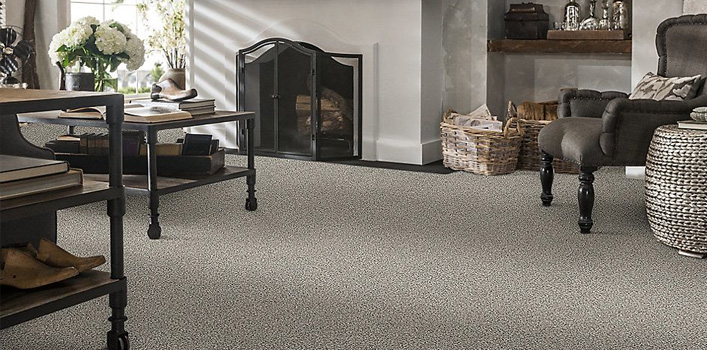
High Performance Nylon Carpet
Nylon is one of the most popular carpet materials on the market. It is an extremely durable, easy to clean fiber making it a great choice for heavy-traffic spaces.
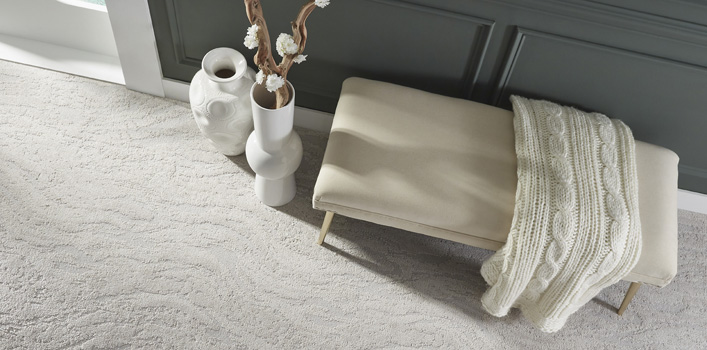
EnVision66® Nylon
Nylon 6,6 is well known as the strongest and most resilient fiber in the carpet industry. It is the favored fiber for applications which have the most demanding performance requirements.
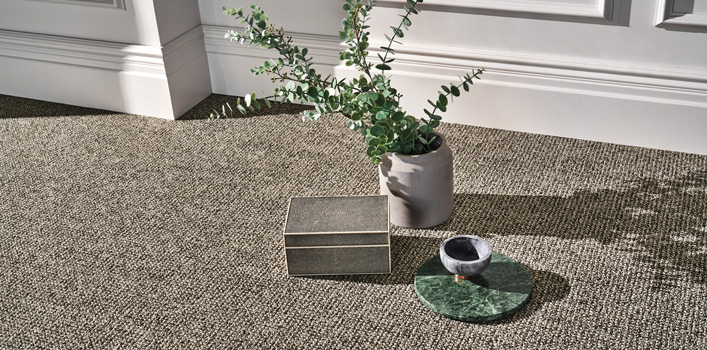
Anso® Nylon
Anso® Nylon is an enhanced synthetic fiber used to manufacture carpet. New innovations give nylon carpet even more durability and soil resistance.
By considering the unique qualities of each synthetic carpet type—such as the durability of nylon, fade resistance of polyester, and affordability of polypropylene—you can make an informed decision based on your specific needs, preferences, and budget.
Wool Carpet Pros and Cons
Wool carpet is renowned for its luxurious softness and eco-friendly characteristics. Understanding the pros and cons of wool carpet will help you make an informed decision. Let’s explore its unique qualities:
Wool Carpet Pros:
- Softness and Comfort: Wool carpet offers a plush, cozy feel underfoot, providing a luxurious experience for homeowners.
- Environmental Friendliness: Wool is a natural fiber derived from sheep without the use of harsh chemicals, making it an eco-friendly choice.
- Moisture Absorption: Wool has the remarkable ability to absorb moisture from the air without feeling damp, acting as a natural dehumidifier in your home.
- Resilience: Wool carpet resists compacting or crushing, maintaining its appearance even in high-traffic areas.
- Natural Dirt Repellent: Wool naturally repels dirt and dust, reducing the need for frequent cleaning.
- Color Retention: Wool fibers accept and retain color exceptionally well, resulting in vibrant and long-lasting carpeting.
- Flame Retardant: Wool is naturally flame retardant and won’t melt under high temperatures, enhancing safety in your home.
Wool Carpet Cons:
- Vulnerability to Moths and Carpet Beetle Larvae: Wool can serve as a food source for moths and carpet beetle larvae. However, this can be effectively prevented through regular cleaning and insecticide treatment.
- Higher Cost: Compared to synthetic carpet options, wool carpet is typically more expensive due to its premium quality and natural origins.
- Sensitivity to Alkaline Substances: Wool can be damaged by alkaline substances found in certain detergents, necessitating the use of specialized cleaning products.
By considering the exceptional softness, environmental benefits, and moisture absorption of wool carpet, along with its vulnerability to pests and higher cost, you can make an informed decision based on your preferences, budget, and specific requirements.
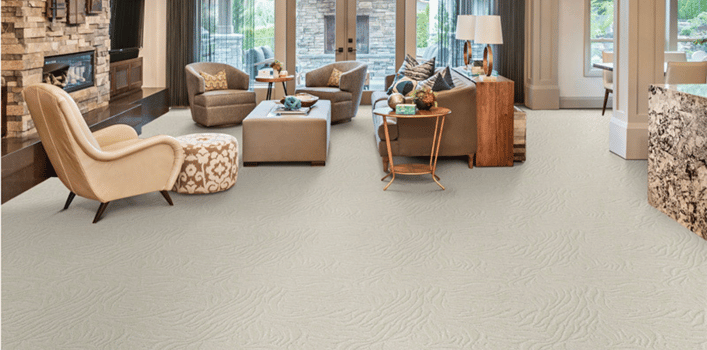
Berber Carpet
Berber Carpet is a great choice for natural and eco-friendly flooring options that’s perfect for any budget.
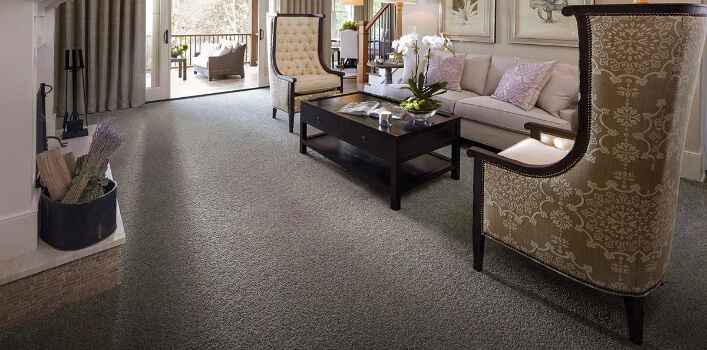
Natural Wool
Nylon 6,6 is well known as the strongest and most resilient fiber in the carpet industry.
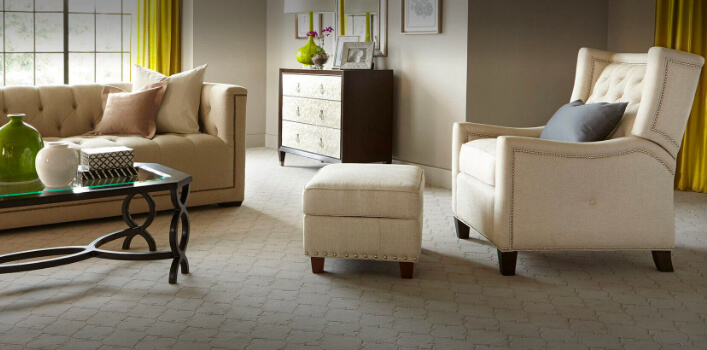
Karastan Carpet
Karastan is the largest processor of wool carpets and rugs in America as well as the largest user of New Zealand wool—the cleanest, whitest wool in the world.
Berber Carpet

Berber Carpet is a great choice for natural and eco-friendly flooring options that’s perfect for any budget.
By considering these factors related to stain-resistance, durability, and specific usage, you can make an informed decision when choosing between wool carpet and synthetic carpet that best suits your needs and preferences.
By considering the exceptional softness, environmental benefits, and moisture absorption of wool carpet, along with its vulnerability to pests and higher cost, you can make an informed decision based on your preferences, budget, and specific requirements.
See our carpet brands and styles and let us know if you have any questions! Our experts are ready to answer them – Contact Us



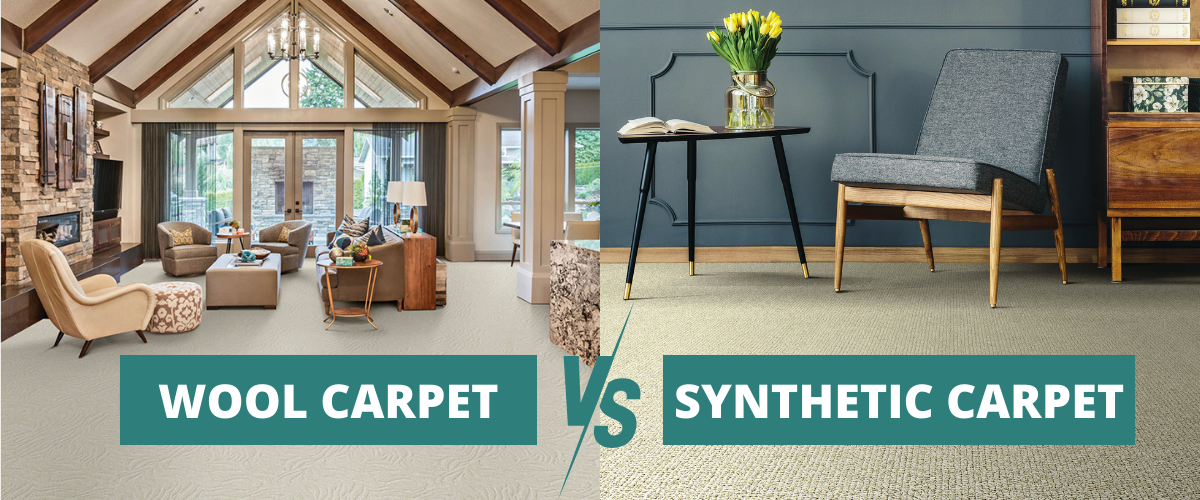





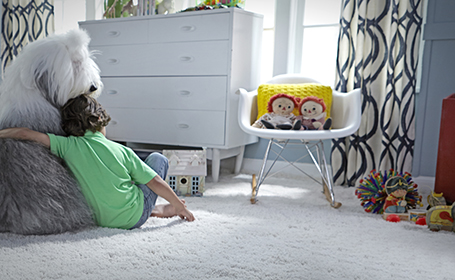


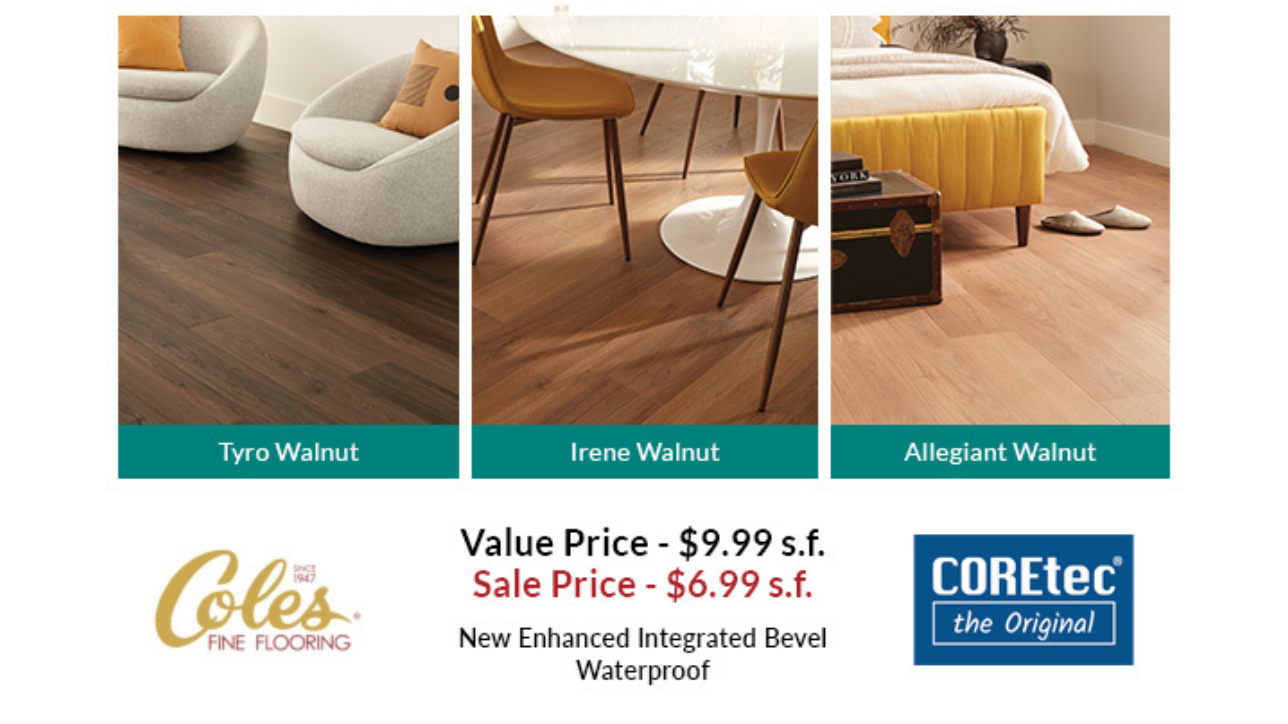
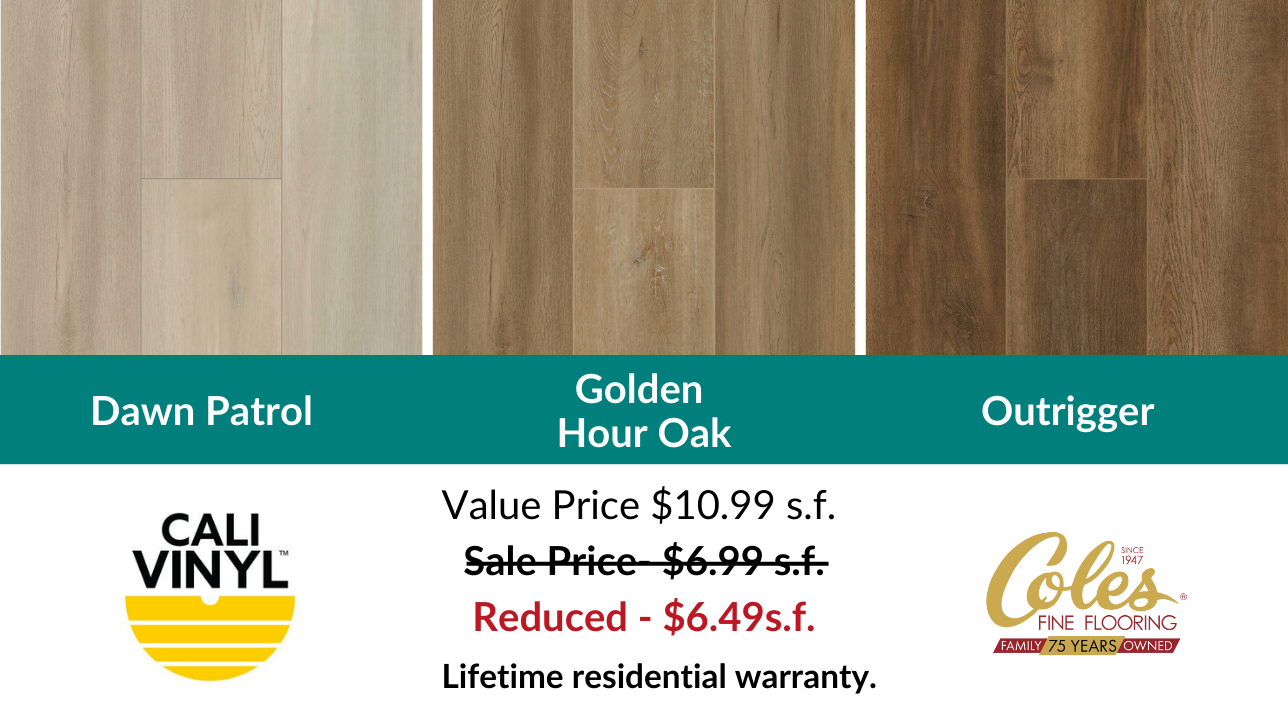
 Prelude Version 2.1
Prelude Version 2.1